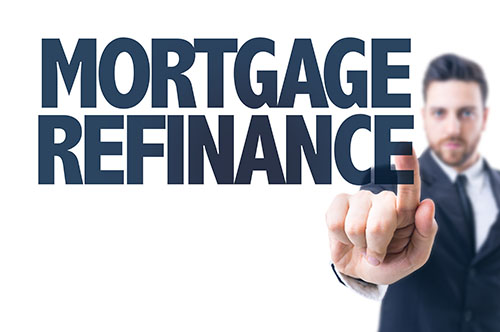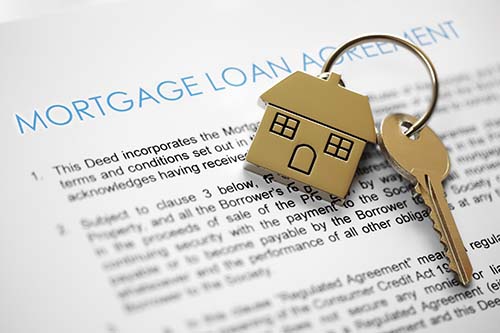 In an effort to boost the value of their property, many homeowners invest in renovations that will help them sell at a higher price. However, with all of the renovation options, it can be hard to know what kind of fix-ups are really worth investing time and money into. If you’re looking at all of your options for home improvements, here are some surefire fixes that won’t stress the bank and will probably bump up the offering price.
In an effort to boost the value of their property, many homeowners invest in renovations that will help them sell at a higher price. However, with all of the renovation options, it can be hard to know what kind of fix-ups are really worth investing time and money into. If you’re looking at all of your options for home improvements, here are some surefire fixes that won’t stress the bank and will probably bump up the offering price.
Add In Stainless Steel
The look and functionality of the kitchen is one of the deciding factors for many homebuyers, and this means that if you have old appliances or an outdated look, you should definitely spend some money on a little upgrading. Since kitchen renovations can be a significant expense when it comes to knocking out walls and adding an island, you may want to stick with smaller stuff like a stainless steel appliance replacement or even renovating your cabinets for a more up-to-date look.
Increase Energy Efficiency
With the push towards reducing overall housing costs and being environmentally sustainable, making your home more energy efficient can be a huge selling feature for the kind of buyers who will be able to save money as a result of renos. While there are many financially taxing overhauls that can seriously bust the bank, try simple fixes like adding extra insulation where drafts exist, and installing LED lights for lowered energy costs and longer light bulb expectancy.
Prep For Paint
It may require a little bit of work to get the job done, but re-painting your home can be one of the best, and most economical, means for upping the value of your home. While painting can still be an economical option even with professional painters, a shiny new coat can take years off the look of your house and instantly improve its appearance. You just need to make sure you choose a neutral color and a high-quality paint for maximum effect.
While taking on home renovations will require a bit of spending, it can be a great idea if you’re re-financing your home and are looking to boost its value. The only thing to keep in mind is making sure you choose the kind of fixes that will be inexpensive and popular on the market. Contact your trusted real estate professional for more information.
 A good credit rating is built on a number of financial factors including paying your bills on time and the length of your credit history, but loans can also be a source of bolstering your credit score in a positive way. While this means that loans can actually be a good thing, there are also the kinds of loans that can have a damaging impact on acquiring a mortgage. If you’ll soon be pursuing your own home purchase, here are some loans that may have a negative impact.
A good credit rating is built on a number of financial factors including paying your bills on time and the length of your credit history, but loans can also be a source of bolstering your credit score in a positive way. While this means that loans can actually be a good thing, there are also the kinds of loans that can have a damaging impact on acquiring a mortgage. If you’ll soon be pursuing your own home purchase, here are some loans that may have a negative impact. There was a time when it was possible to acquire a mortgage shortly after filing for Chapter 7 bankruptcy, but with the shifts in the financial sector, the timeline on such a mortgage approval has changed in recent years. If you’re currently undergoing a Chapter 7 bankruptcy and are wondering how this will impact home ownership, here are the basics on this type of bankruptcy and what it may mean for you.
There was a time when it was possible to acquire a mortgage shortly after filing for Chapter 7 bankruptcy, but with the shifts in the financial sector, the timeline on such a mortgage approval has changed in recent years. If you’re currently undergoing a Chapter 7 bankruptcy and are wondering how this will impact home ownership, here are the basics on this type of bankruptcy and what it may mean for you. For many homebuyers who are new to the market, it can be very comforting to be on a fixed rate mortgage where fluctuating interest rates cannot have an impact on your monthly payments. While a variable rate mortgage can sometimes lead to significant savings at the end of the day, there are a few ways you can tell if your monthly payment is on the upswing.
For many homebuyers who are new to the market, it can be very comforting to be on a fixed rate mortgage where fluctuating interest rates cannot have an impact on your monthly payments. While a variable rate mortgage can sometimes lead to significant savings at the end of the day, there are a few ways you can tell if your monthly payment is on the upswing. Making the decision to purchase a home is one of the most significant investments most people will make in their life, and this automatically means there are a lot of questions that need to be answered before putting any money down. If you’re considering making the leap, here are some insights into some of the common questions you might have.
Making the decision to purchase a home is one of the most significant investments most people will make in their life, and this automatically means there are a lot of questions that need to be answered before putting any money down. If you’re considering making the leap, here are some insights into some of the common questions you might have. When you’ve finally found the home you’re looking for at the right price, it’s easy to think that the hard part is over; however, there’s still a lot to do in order to ensure your purchase goes through without a hitch. If you’re tying up the loose ends on your home purchase, here are some things you should do to avoid any unnecessary delays.
When you’ve finally found the home you’re looking for at the right price, it’s easy to think that the hard part is over; however, there’s still a lot to do in order to ensure your purchase goes through without a hitch. If you’re tying up the loose ends on your home purchase, here are some things you should do to avoid any unnecessary delays.